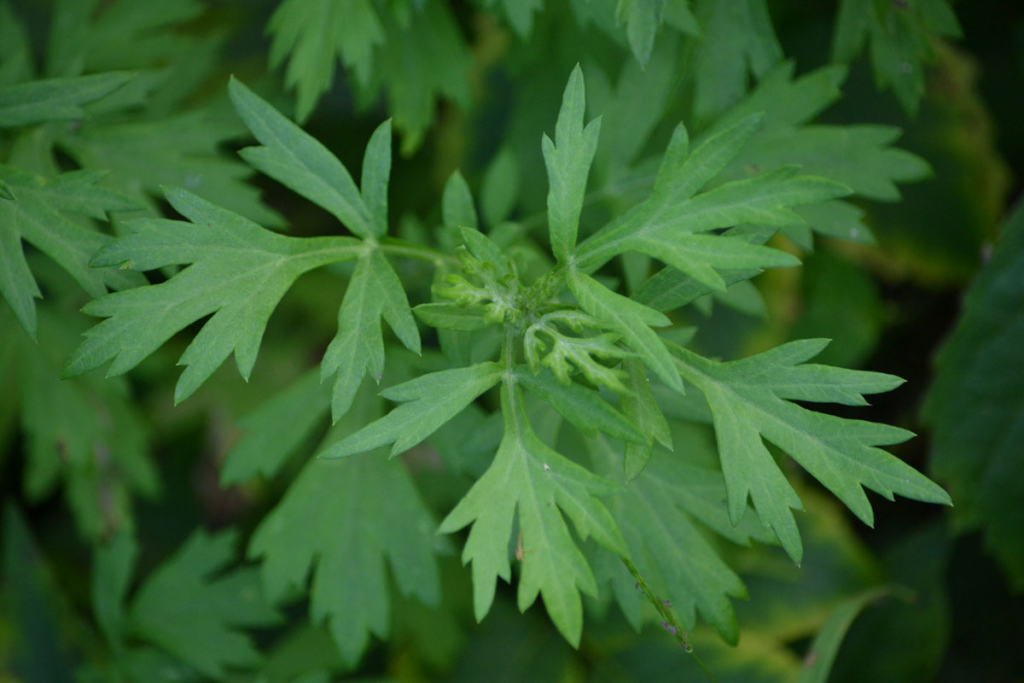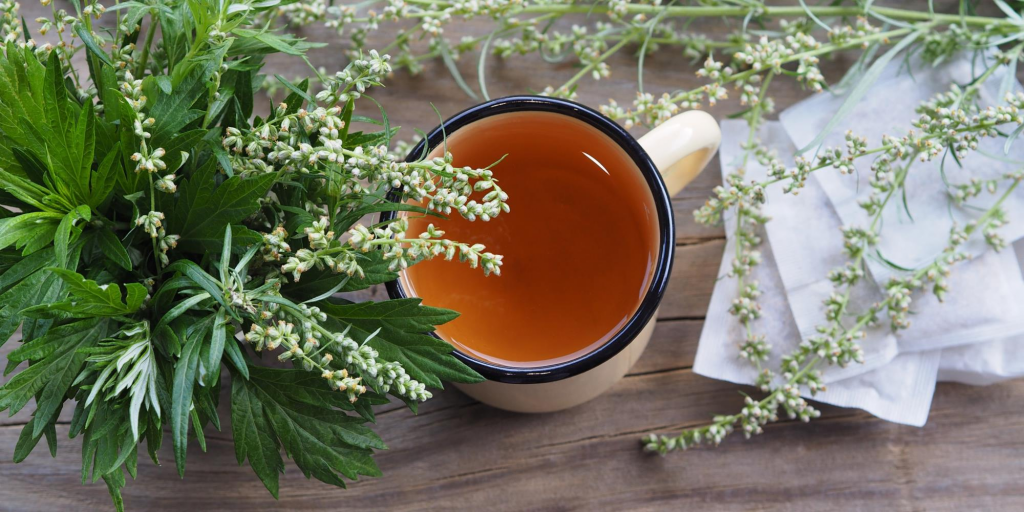Imagine a single handful of leaves being more valuable than an entire medicine cabinet. Sounds unbelievable, right? Yet for centuries, traditional healers across Asia and Europe have praised mugwort (Artemisia vulgaris) as a natural powerhouse. Known for its distinctive aroma and versatility, mugwort leaves have been used in teas, poultices, and even culinary dishes. Today, modern wellness seekers are rediscovering its potential—ranging from digestion and circulation to stress relief and immune support.
According to recent surveys, nearly 40% of adults in the U.S. turn to herbal remedies for everyday health concerns. But while many herbs have gained popularity, mugwort still remains underappreciated in the West. Could this humble leaf be the natural solution hiding in plain sight? Let’s take a deep dive into the science, the tradition, and the everyday uses of mugwort that make it a must-know for anyone who cares about their health.

What Makes Mugwort So Special?
Mugwort leaves are rich in bioactive compounds that may explain their wide range of reported benefits.
Key compounds include:
- Flavonoids – antioxidant agents that protect cells from oxidative stress.
- Essential oils – particularly cineole and thujone, supporting relaxation and circulation.
- Tannins – known for their antimicrobial and digestive-supporting effects.
- Vitamins and minerals – including vitamin A, vitamin C, potassium, and calcium.
This nutrient-dense profile gives mugwort the ability to act on multiple systems in the body at once, which is why traditional medicine often referred to it as an “all-purpose healer.”
The Top Health Benefits of Mugwort Leaves
1. Digestive Health and Gut Support
Mugwort tea has traditionally been used to soothe indigestion, bloating, and gas. Its bitter compounds stimulate bile flow, which helps break down food more efficiently. Many people today still brew mugwort before heavy meals to aid digestion.

2. Improved Circulation and Blood Flow
Traditional Chinese medicine values mugwort for its warming properties. Its compounds encourage better circulation, which may ease cold extremities and support overall heart health.
3. Stress Relief and Sleep Support
The mild sedative qualities of mugwort make it popular as a bedtime tea. In some cultures, placing mugwort under pillows was believed to promote vivid dreams and restful sleep. Modern users often report reduced stress and better sleep quality when drinking mugwort infusions regularly.
4. Immune Support and Antimicrobial Properties
Mugwort leaves are believed to strengthen the immune system by reducing oxidative stress and supporting the body’s natural defenses. Their antimicrobial properties may help defend against minor infections when used topically or consumed as tea.
5. Women’s Health and Hormonal Balance
In folk medicine, mugwort has long been used to support menstrual health by easing cramps and regulating cycles. While research is still emerging, its traditional role in women’s wellness makes it a subject of ongoing interest.

6. Liver and Detox Support
Mugwort’s antioxidants may help reduce liver stress and support detoxification processes. Some holistic practitioners recommend mugwort tea as part of seasonal cleanses to help the body eliminate toxins naturally.
Practical Ways to Use Mugwort
Mugwort leaves can be incorporated into your wellness routine in several safe and practical ways.
Mugwort Tea
- Dry the leaves thoroughly.
- Steep 1 teaspoon of dried mugwort in hot water for 5–10 minutes.
- Strain and enjoy up to once daily.

Mugwort Poultice
- Crushed fresh leaves can be applied externally to minor skin irritations or sore muscles.
Culinary Use
- In some cultures, mugwort is used in soups, stews, or rice cakes for both flavor and health benefits.
Aromatherapy
- Dried mugwort can be burned as incense or added to herbal pillows to promote relaxation.
Real-Life Experiences
Case 1: A woman in her early 40s dealing with recurring bloating started drinking mugwort tea before dinner. Within weeks, she reported less discomfort and improved digestion.
Case 2: A man in his late 50s with circulation issues added mugwort tea to his evening routine. Over time, he noticed warmer hands and feet, and a better sense of overall vitality.
While these are anecdotal, they reflect long-standing traditions and underline the plant’s value in holistic wellness.

Quick Reference Guide
| Benefit | How It Helps | Best Use Method |
|---|---|---|
| Digestion | Stimulates bile, reduces bloating | Tea before meals |
| Circulation | Encourages healthy blood flow | Tea, poultice |
| Stress & Sleep | Mild sedative, promotes relaxation | Tea, aromatherapy |
| Immunity | Antioxidants & antimicrobial effects | Tea, poultice |
| Women’s Health | Eases cramps, supports cycles | Tea, infusion |
| Liver Support | Reduces oxidative stress | Tea, culinary use |
Safety and Precautions
- Mugwort should be consumed in moderation.
- Pregnant and breastfeeding women should avoid it, as it may stimulate uterine contractions.
- People with allergies to plants in the Asteraceae family (ragweed, daisies, marigolds) may experience allergic reactions.
- Always consult with a healthcare provider before using mugwort if you are on medications for chronic conditions.
Conclusion: Frequently Asked Questions About Mugwort
Can mugwort replace prescribed medicine?
No. Mugwort is supportive and complementary, not a substitute for professional medical care.
How often should I drink mugwort tea?
Most herbalists suggest starting with 2–3 cups per week and adjusting based on your body’s response.
What’s the best form for beginners?
Mugwort tea is the simplest and most accessible method for most people.
Disclaimer: This content is for educational purposes only and should not replace medical advice. Always consult your healthcare provider before starting new remedies.




